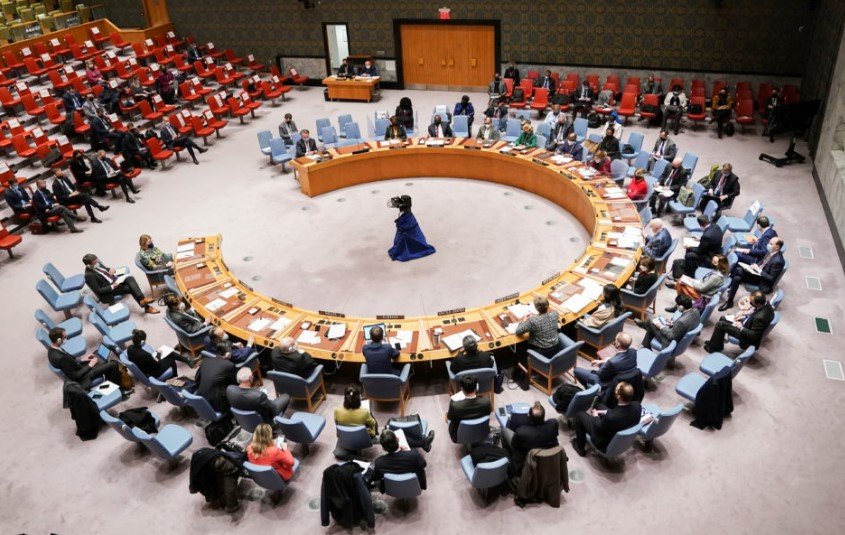A sweeping halt on state inspections aims to ease pressure on Ukraine’s battered private sector—but trust in the system remains shaky.
President Volodymyr Zelensky says he’s had enough of bureaucrats with badges disrupting businesses. On July 21, in his nightly address, he announced what might be one of the most dramatic wartime economic pivots yet: a full-blown moratorium on business inspections by state authorities.
This isn’t just about pausing a few surprise visits. The move effectively sidelines entire branches of law enforcement and regulatory bodies notorious for raiding businesses—sometimes with assault rifles and masks. For a country fighting a brutal war and economic collapse at the same time, it’s a calculated gamble.
Pressure from All Sides Pushes Kyiv to Act
Ukraine’s government has been cornered—by business owners, anti-corruption advocates, international lenders, and even members of its own ruling coalition. For months, they’ve sounded the alarm about overreach by security forces and agencies like the Bureau of Economic Security (BES), accused of using economic crime investigations as leverage.
The criticism boiled over earlier this year after videos showed tax police storming the offices of small businesses, treating accountants like criminals. Some of these firms were mom-and-pop shops barely staying afloat amid blackouts and missile sirens.
Newly appointed National Security and Defense Council Secretary Rustem Umerov didn’t mince words: “Unjustified inspections must stop,” he said. He signaled a shift to a risk-based oversight model and promised transparency through digital audits.
But skepticism lingers. Reforms like this aren’t new. Zelensky’s office has tried similar gestures since 2024—creating a business council, pledging audits, even rebooting agencies. None have stuck.

What Changes and What Doesn’t Under the Moratorium
Not every inspection will vanish. Umerov clarified that law enforcement won’t be totally sidelined. Instead, inspections will now need to meet specific, risk-based criteria—especially for small and medium-sized businesses, which have borne the brunt of state overreach.
Here’s what businesses can expect, at least on paper:
-
Fewer surprise inspections for companies without red flags.
-
An audit of past investigations that disrupted businesses.
-
Digital transparency systems to log every enforcement action.
The real test? Whether this will be enforced fairly. In past rollouts, reforms on paper were often undermined by informal networks that continue to operate in the shadows.
Table: Key Agencies Impacted by the Moratorium
| Agency Name | Known Role | Current Status |
|---|---|---|
| Bureau of Economic Security (BES) | Investigates financial crimes | Under leadership controversy |
| State Tax Service | Conducts tax inspections | Limited authority post-moratorium |
| Security Service of Ukraine (SBU) | Handles national security and economic probes | Inspections must now meet higher threshold |
| National Police Economic Division | Raids and seizes assets for economic crime cases | Significantly curtailed |
A Long, Frustrating Road for Business Owners
Ask any Ukrainian entrepreneur and they’ll likely say the same thing: the harassment didn’t start with the war—and it didn’t end just because the bombs started falling.
Even as tanks rolled toward Bakhmut in 2023, entrepreneurs in Odesa and Lviv were still fielding demands for payments, inspections, and unexplained visits from state agents. The BES quickly became a lightning rod for criticism, with watchdog groups accusing it of acting as a “business raiding arm” of powerful interests.
One Kyiv-based logistics company owner, who requested anonymity, said his warehouse was shut down three times in the past 18 months. “We weren’t dodging taxes,” he said. “They just wanted to flex authority.”
Reform or Repeat? IMF and Civil Society Watch Closely
Ukraine’s international backers—particularly the IMF—have their eyes glued to these reforms. Kyiv’s access to billions in aid depends not just on battlefield success, but on credible governance reforms, too.
When the Cabinet of Ministers blocked the appointment of anti-corruption officer Oleksandr Tsyvinsky to head the BES earlier this month, alarm bells rang in Brussels and Washington.
Tsyvinsky, a respected detective with the National Anti-Corruption Bureau, accused the government of using “manipulative” tactics to keep him out. Many saw the move as another example of state reluctance to let truly independent watchdogs take the reins.
And with peace talks with Russia set for July 23, any misstep in governance could ripple into the geopolitical arena.
Zelensky’s Bigger Bet: Let Business Rebuild the War Economy
Behind the moratorium lies a much bigger strategy. Zelensky’s administration is betting that Ukraine’s wartime recovery won’t come from more state control—but from unleashing businesses to produce, export, and hire.
Prime Minister Yuliia Svyrydenko—recently installed during a wide cabinet reshuffle—echoed this sentiment by announcing a separate one-year moratorium on tax and customs inspections.
Umerov framed the move as part of a “comprehensive security architecture,” an umbrella term that covers defense, economics, and social stability. He also issued a stark warning: no resilient economy, no strong army.
One-liner? Ukraine can’t afford to keep choking the very engine it needs to win the war.
Wartime Governance: Balancing Control and Trust
This isn’t the first time wartime Ukraine has made big promises on paper. Nor is it the first time it’s been caught between the need for strong governance and the danger of abusing that power.
The challenge now is clear: can the government shift from a posture of control to one of trust? Can it allow businesses room to breathe without letting corruption sneak back in?
It’s a thin line. But with bombs still falling, and Russia’s economy still larger by every metric, it may be Ukraine’s only shot at economic survival.








